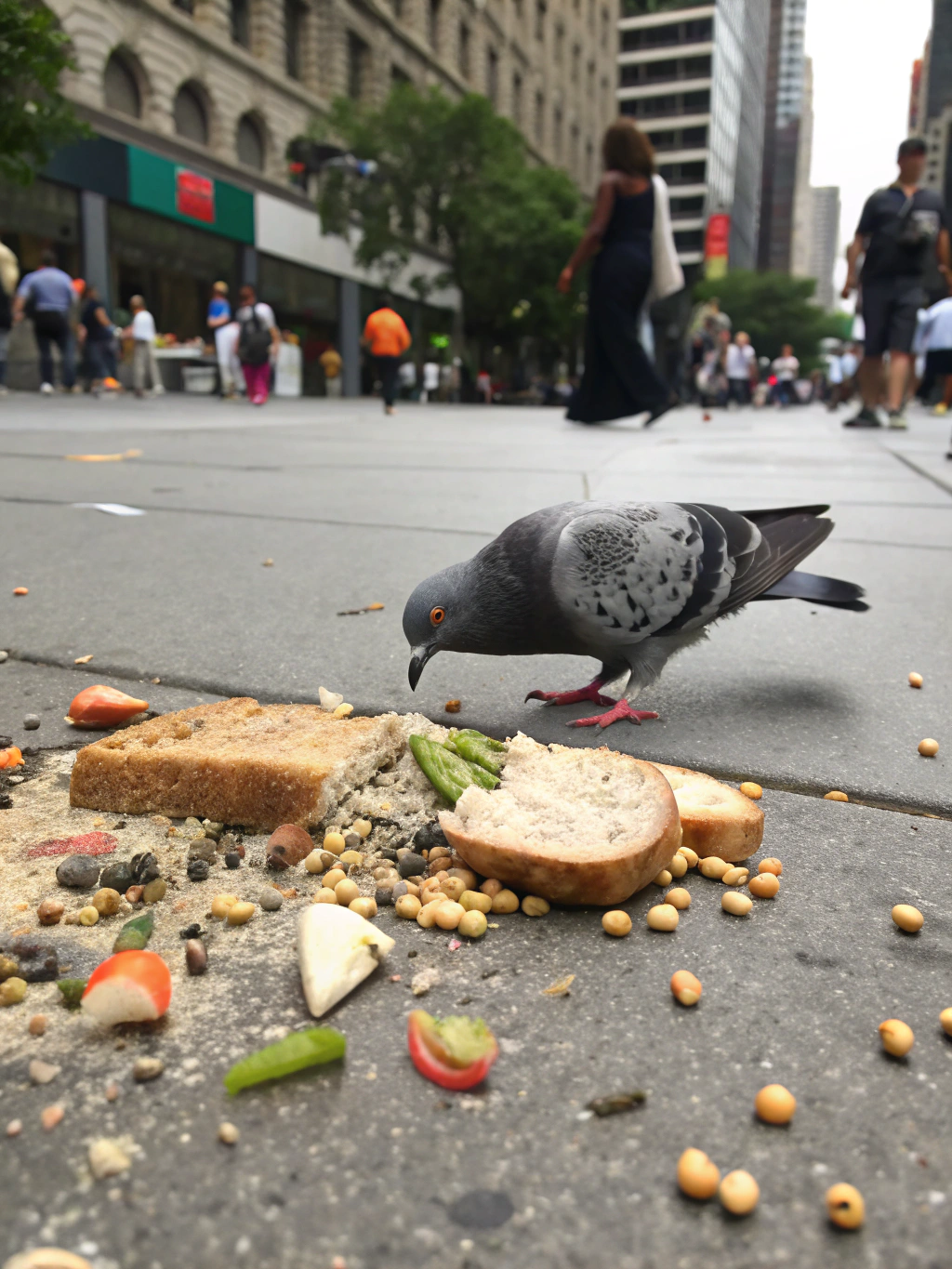What Do Pigeons Eat? 5 Safe Foods They Love
Table of Contents
Introduction
Did you know that pigeons can recognize human faces and remember people who’ve been kind to them? This remarkable ability makes feeding these common urban birds more than just a casual activity – it becomes a potential friendship. If you’ve ever wondered about what do pigeons eat in different environments, you’re not alone. Whether you’ve encountered these birds in parks, streets, or even your backyard, understanding their dietary needs is essential for feeding them responsibly.
Many people are surprised to learn that a pigeon’s diet varies significantly between wild and urban settings, affecting both their health and behavior. Let’s explore what these intelligent birds naturally eat and how you can safely feed them.
Key Information Snapshot
• Natural Diet: Seeds, grains, fruits, berries, and occasionally insects
• Urban Diet: Often includes bread, popcorn, and human food scraps (not all healthy)
• Best Foods: Birdseed mixes, cracked corn, peas, oats, and chopped leafy greens
• Foods to Avoid: Chocolate, avocado, caffeine, alcohol, and salty foods
• Feeding Schedule: Small amounts once daily rather than large quantities
• Water Needs: Fresh water is just as important as food
Detailed Explanation
Natural Diet of Wild Pigeons
In their natural habitat, pigeons (also known as rock doves) have evolved to eat a specific diet that supports their energy needs and health. Wild pigeons primarily forage for:
Seeds and Grains: These make up about 60-80% of their natural diet. Pigeons particularly favor small seeds from grasses, weeds, and flowering plants.
Fruits and Berries: Wild pigeons supplement their seed diet with seasonal fruits and berries they find on shrubs and low-hanging tree branches.
Greens: Fresh green plant material provides essential vitamins and minerals.
Insects: Though not their preferred food, pigeons occasionally eat small insects, particularly when raising young that need extra protein.
Urban Pigeon Diet
City-dwelling pigeons have adapted to human environments, significantly altering their natural diet. Urban pigeons typically consume:
Human Food Scraps: Often nutritionally poor but convenient and abundant
Bread: Commonly offered but lacks necessary nutrients
Popcorn and Crackers: Frequently available in parks and plazas
Discarded Fast Food: Unfortunately common in urban areas
5 Best Foods for Pigeons
If you’re wondering what do i feed a pigeon safely, these options are both nutritious and appreciated:
Birdseed Mixes: Commercial mixes designed for doves or pigeons provide balanced nutrition.
Cracked Corn: High in carbohydrates and easily digestible, making it an excellent energy source.
Peas and Lentils: Offer protein and are soft enough for pigeons to eat easily.
Oats: Rolled oats (uncooked) provide good nutrition without expanding in their crops.
Chopped Leafy Greens: Kale, spinach, and lettuce provide essential vitamins.
Related Facts or Tips
Did you know? Pigeons have been used as messengers for over 5,000 years and can find their way home from nearly 1,300 miles away!
Tip: When feeding pigeons, scatter food in a wide area rather than piling it in one spot. This reduces competition and allows more birds to eat.
Did you know? Pigeons don’t need to lift their heads to swallow water like most birds – they can suck water directly, similar to drinking through a straw.
Tip: Feed pigeons in the morning when they’re naturally most active and hungry.
Common Questions (FAQs)
Is it legal to feed pigeons in cities?
Many cities have regulations against feeding pigeons in public spaces due to concerns about overpopulation and property damage. Check your local ordinances before feeding.
How often should I feed pigeons?
If you regularly feed pigeons, once daily is sufficient. Overfeeding can lead to dependency and population growth beyond what the environment can support.
Can pigeons eat rice?
Yes, contrary to popular myths, uncooked rice is safe for pigeons. They eat similar grains in the wild.
Do pigeons need water?
Absolutely. Always provide fresh water alongside any food, especially during hot weather.
Will feeding pigeons make them dependent?
Regular feeding can make pigeons reliant on human food sources, potentially affecting their natural foraging behaviors. Feed responsibly and in moderation.
Practical Applications
Creating a Pigeon-Friendly Feeding Area
If you want to feed pigeons responsibly at home:
- Choose a consistent location away from high-traffic areas and your neighbors’ properties.
- Use a platform feeder rather than scattering food on the ground to reduce waste.
- Clean the feeding area regularly to prevent mold and bacterial growth.
- Provide fresh water in a shallow dish that pigeons can easily access.
- Feed small amounts at scheduled times rather than leaving food out all day.
Mistakes to Avoid
Bread-Only Diet: Bread lacks essential nutrients and can cause malnutrition when it’s the primary food source.
Feeding Too Much: Overfeeding leads to dependency and can create an unsustainable population boom.
Feeding Harmful Foods: Avoid chocolate, caffeine, alcohol, avocado, onion, garlic, and heavily salted foods.
Inconsistent Feeding: Starting a feeding routine and then stopping suddenly can harm birds that have come to rely on you.
Ignoring Local Regulations: Many cities have ordinances against feeding pigeons – check before you start.
Conclusion
Understanding what pigeons eat in different environments helps us interact with these adaptable birds responsibly. While wild pigeons thrive on seeds, grains, and natural plant materials, urban pigeons have adapted to a wider variety of foods—not all beneficial for their health.
By offering appropriate foods like seed mixes, corn, peas, and leafy greens in moderation, you can enjoy the company of these intelligent birds without causing harm. Remember that responsible feeding practices consider not just the birds’ immediate needs but also their long-term health and the urban environment we share with them.
Have you had memorable experiences feeding pigeons? Share your stories in the comments below!






